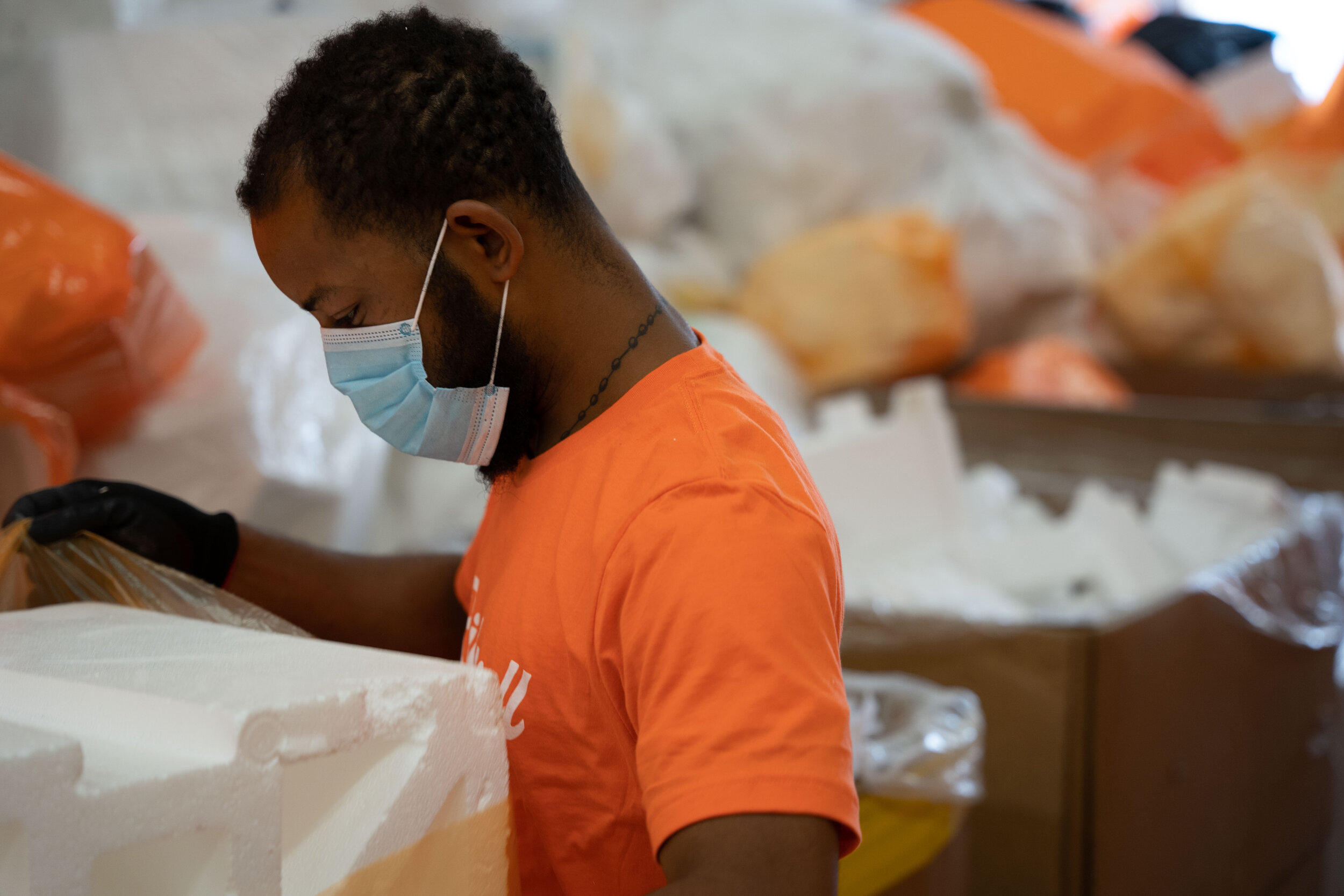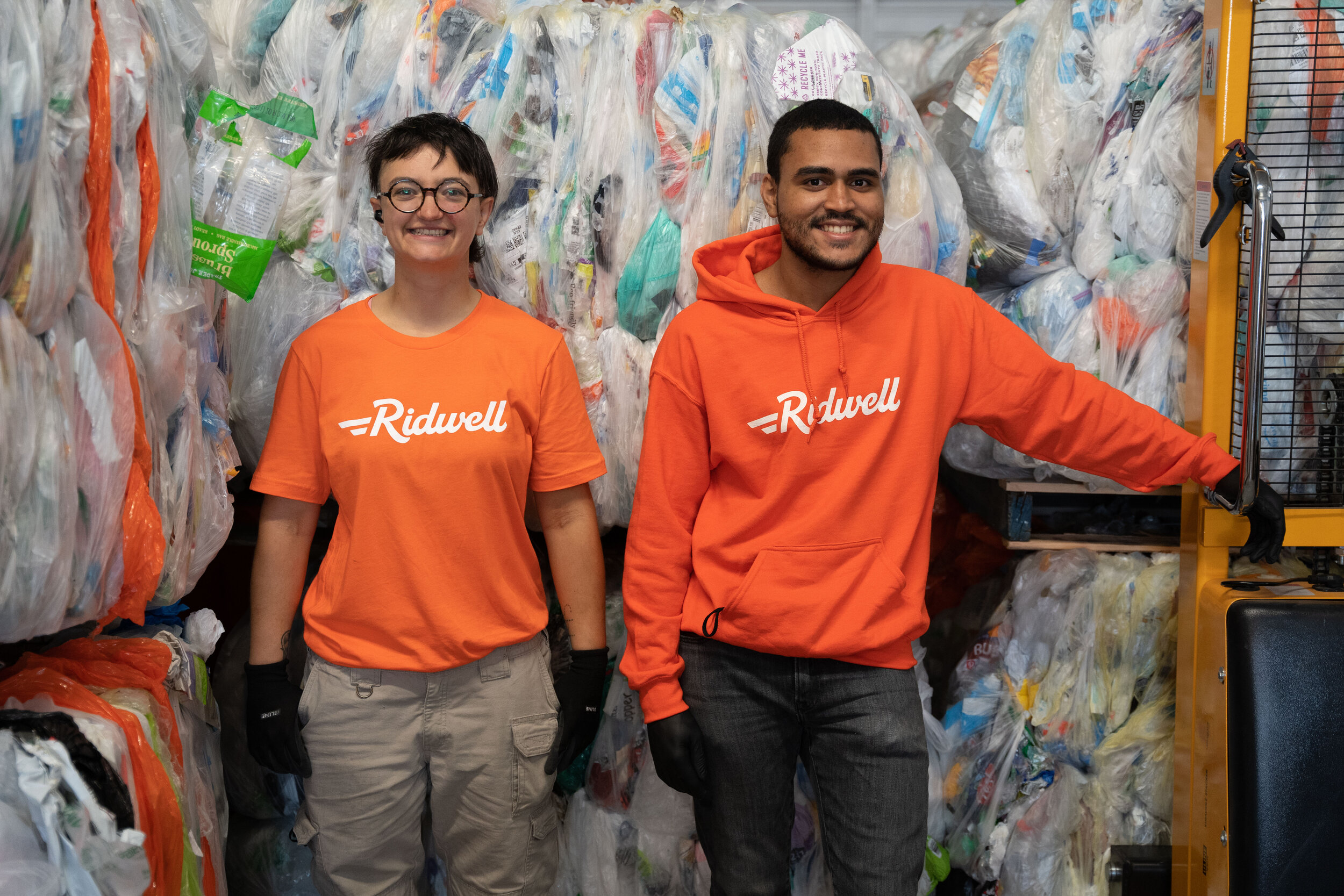More transparency. Less trash.
You buy it. You use it. You toss it (into the trash or recycling).
And then what? Do you really know what happens when an item leaves your hands or gets picked up from the curb?
At Ridwell, we believe everyone deserves to know where their stuff ends up.
Inspired by what our members have achieved so far, we want to do more. A lot more. We know there are a lot of people out there who want to do their part to reduce waste, but after years of hearing about problems in the recycling industry, they have lost faith they can make a difference.
So we're making an effort to rebuild that trust. Solving our waste problem will require restoring faith that recycling and reuse programs work, and that individual actions matter. That’s why we're pulling back the curtain with a first-of-its-kind transparency page.
Before you dive in, here are two key terms you’ll need to know:
Contamination: Stuff we receive that (unfortunately) still ends up in the landfill
Diverted Materials: Stuff we collect that can be reused or recycled by our partners
Ready to see where your stuff goes?
Need a little more background first? Keep reading to better understand the current challenges for reuse and recycling, and what Ridwell is doing about it.
A look at the current problem:
The waste and recycling industries have come under tremendous pressure in the last five years. In particular, the effectiveness of single-stream recycling (where everything goes in one bin), the poster child for municipal waste diversion, has been undermined by a series of challenges. As consumer behavior shifts and new items end up in commingled bins, it gets harder to sort recyclable material, leading to higher contamination rates. As the sorted material gets more contaminated, the desirability and price of these materials decreases. As awareness of our global waste problems continue to grow, commodity markets often tighten or disappear. And our heavily regulated recycling and waste industries are unable to quickly adapt, let alone be transparent about where your stuff is going.
Up to 25% of materials that are put in the recycling bin end up in landfills*
*Varies by city and county. Sources:
https://www.nytimes.com/2018/05/29/climate/recycling-landfills-plastic-papers.html
https://news.climate.columbia.edu/2020/03/13/fix-recycling-america/
There’s also the challenge of falling public trust: Without easy access to information about where stuff goes, combined with years of troubling reports about traditional recycling programs, people have lost faith that their efforts can make a difference. We want to restore that faith, because we've seen first hand how small acts add up to make a big impact.
What we’re doing differently:
Our community’s top priority is building a future without waste. This means we all do our part, taking small steps that add up to big change. Not just our team, but our entire community. And yes, that means you make this possible.
By taking the extra step to sort your materials, you’re making sure your stuff isn’t contaminated. Then, we work with specialty partners to get your stuff reused or recycled the right way. Because machine-sorting results in contamination, municipal recyclers aren’t generally able to work with these specialty partners – and your hard-to-recycle and reusable items too often end up in the landfill.
Finally, we are sharing an honest, behind-the-scenes look at the process to keep each other informed and hold ourselves accountable.
Why it matters:
Collecting and sharing this data with our community means that we will have a way to measure the success of our efforts and better understand where we can improve. Members can see the types of materials that lead to contamination. Ridwell can better understand where to focus our efforts to increase our diversion rates by finding new partners and new opportunities.
Enabling people to reuse and recycle more of their materials – more often and with more ease – is how we eventually achieve a future without waste. And by keeping our community as informed as possible, we’re helping to rebuild trust in the value of reuse and recycling and providing clear proof of a better way forward.
Thank you for being a part of Ridwell’s movement to build a less wasteful future. Because of your small actions, we believe our vision can become a reality.
Any questions, suggestions or cool ideas? Reach out to us at help@ridwell.com



